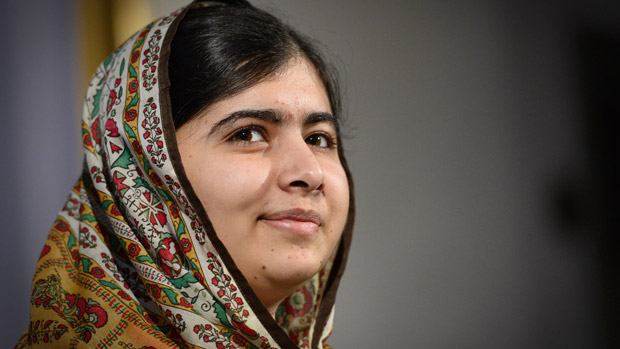What is Malala Yousafzai up to now?
Youngest ever Nobel Peace Prize winner shines light on plight of refugees in new book

A free daily email with the biggest news stories of the day – and the best features from TheWeek.com
You are now subscribed
Your newsletter sign-up was successful
Nobel laureate Malala Yousafzai has returned to Pakistan for the first time since she was shot by Taliban gunmen in an assassination attempt more than five years ago.
The 20-year-old education activist landed in Islamabad this morning for a four-day visit amid heavy security. She was later honoured by Prime Minister Shahid Khaqan Abbasi at a special ceremony at his residence.
It is unclear if Yousafzai will visit her home town in the Swat Valley, where she was shot in the head by militants as she sat on a school bus with classmates in 2012.
The Week
Escape your echo chamber. Get the facts behind the news, plus analysis from multiple perspectives.

Sign up for The Week's Free Newsletters
From our morning news briefing to a weekly Good News Newsletter, get the best of The Week delivered directly to your inbox.
From our morning news briefing to a weekly Good News Newsletter, get the best of The Week delivered directly to your inbox.
In a speech after her meeting with Abbasi, the feminist campaigner said she had dreamed of coming back to Pakistan “every day for the last five years”, reports the country’s The Express Tribune.
“It’s the happiest day of my life,” she said. “I still can’t believe it’s happening. I don’t normally cry. I’m still 20 years old but I’ve seen so many things in life.”
Yousafzai was targeted by Taliban gunmen for campaigning for female education in the deeply conservative region.
Following the attack, she was transferred to hospital in the UK, where she made a full recovery.
A free daily email with the biggest news stories of the day – and the best features from TheWeek.com
Yousafzai continued her advocacy for girls’ access to education after starting a new life in Birmingham with her family, and became the youngest-ever recipient of the Nobel Peace Prize in 2014.
In an interview with US talk show host David Letterman earlier this month, the Oxford University student said that she missed “the rivers and mountains” of the Swat Valley and that all she wanted was for her “feet to touch the ground of home”.
News of her arrival has been received enthusiastically by many Pakistanis, the BBC’s Pakistan correspondent Secunder Kermani reports.
“Some Pakistanis have long been critics of Malala, favouring conspiracy theories claiming she is ‘a Western agent’ or was actually shot by the CIA,” Kermani says. “For many other Pakistanis, though, Malala is a source of great pride, and now she’s finally come home.”
Politicians, journalists and celebrities were among those welcoming her back.
Faryal Niaz, a student at the Khushal Model School in Mingora, where Yousafzai studied before she was shot, said the activist was her idol, CNN reports.
“When girls like us go to school in Swat, the only reason is Malala Yousafzai,” the schoolgirl said.